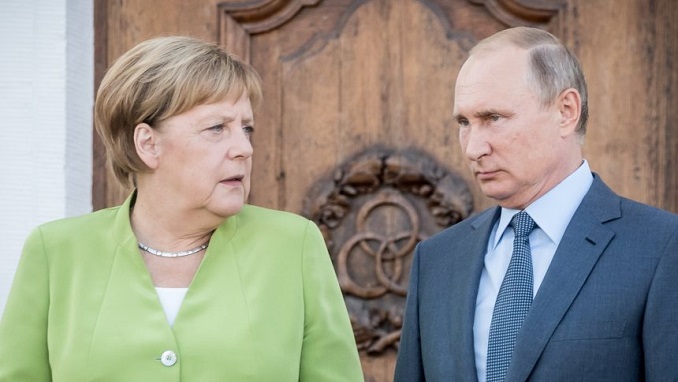German Chancellor Angela Merkel will arrive in Russia on a working visit on January 11 on the invitation of Russian President Vladimir Putin, the Kremlin’s press office reported on Monday, TASS informs.
“During the talks, the sides intend to discuss essential issues of the international agenda, including the situation in Syria and Libya, the escalation of tension in the Middle East as a result of the US airstrike on Baghdad Airport on January 3,” the Kremlin press office reported.
“The sides will also consider the issues of settling the intra-Ukrainian conflict in the context of implementing the 2015 Minsk Package of Measures and the agreements reached at the Normandy Four summit in Paris on December 9, 2019,” the press office said.
The situation in the Middle East deteriorated sharply after the Pentagon announced on January 3 that Commander of the Quds Force of the Islamic Revolutionary Guards Corps (the elite wing of the Iranian military) General Qasem Soleimani had been killed in a US airstrike near Baghdad airport. The missile strike came on order of US President Donald Trump.
According to the US Administration, the operation was defensive, as it was aimed at protecting US troops stationed in the Middle East. According to Washington, the attacks planned by the Iranian general could have led to the deaths of hundreds of Americans and Iraqis.
After the attack, Iran’s Supreme National Security Council vowed at an emergency session to exact “severe revenge” on those involved in the killing of Soleimani, blaming the US for the attack. In a telephone call with UN Secretary General Antonio Guterres, Iranian Foreign Minister Mohammad Javad Zarif slammed the attack as an act of terrorism by the US.
The Normandy Four summit with the participation of the leaders of Russia, France, Germany and Ukraine took place in Paris on December 9. As one of its results, a decision was made on holding a prisoner swap in the Donbass region by the end of the year, using the principle of “all identified for all identified.”
The summit participants undertook to provide for a complete and comprehensive ceasefire until the end of 2019 and agreed to support the agreement within the Contact Group on settling the situation in eastern Ukraine with regard to three additional sections of the disengagement of forces and weapons in the conflict area by the end of March 2020.












